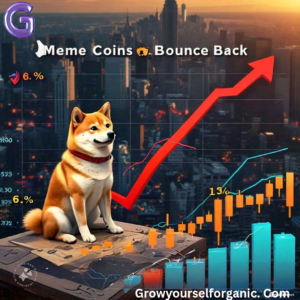How Marcus Samuel Built The Biggest Oil Company In The World!
The story of how Marcus Samuel built the largest oil company in the world is a captivating exploration of vision, determination, and strategic acumen.
Samuel’s journey from establishing Shell Oil Transport Co. to its significant merger with Royal Dutch and beyond, paints an intriguing picture of industrial transformation.
His pivotal role during World War I saw Shell emerge as a key player in fuel distribution, leaving an indelible mark on the energy landscape. Despite facing numerous challenges, Samuel’s leadership ensured Shell’s firm foothold in the global energy market.
This narrative offers invaluable insights into the making of an industry titan.
Key Takeaways
- Marcus Samuel foresaw the potential of oil, establishing Shell Oil Transport Co with innovative kerosene tankers.
- He strengthened Shell’s position through strategic alliances, such as the merger with Royal Dutch in 1907.
- Despite challenges and controversies, Samuel’s leadership led to significant milestones like fuel distribution during World Wars.
- Samuel’s commitment to innovation and strategic alliances drove Shell’s expansion and transformation into the world’s biggest oil company.
Early Life of Marcus Samuel
Born in 1853 into a family of Baghdadi Jews in Whitechapel, London, Marcus Samuel’s early life was steeped in commerce, as his father ran the successful Far East trading business, M. Samuel & Co.
This exposure to business from a young age nurtured an entrepreneurial spirit in Samuel, which would later manifest in his innovative ventures.
Samuel was educated in both Edmonton and Brussels, experiences that broadened his worldview and laid the groundwork for future international trade endeavors.
His extensive travel across Asia, particularly the Far East, not only facilitated a deep understanding of diverse cultures and markets, but it also sparked his astute recognition of the burgeoning oil industry.
In 1890, during a trip to the Caucasus, Samuel foresaw the potential of the oil market. This realization, combined with his business acumen, was pivotal in him taking the bold step of launching the first Japanese gold sterling loan in London in 1897.
These early endeavors in London, trading, and the Far East set the stage for Samuel’s later achievements in the oil industry, which revolutionized energy production globally.
Formation of Shell Oil Transport Co
Leveraging his deep understanding of international trade and recognizing the potential of the rapidly growing oil market, Samuel established the Shell Oil Transport Company in 1892, with a vision to revolutionize the oil transportation industry.
- Creation: Samuel’s innovative venture marked the formation of Shell. He was driven by a vision to streamline oil transport, a significant step in the burgeoning oil industry.
- Innovation: The company’s pioneering work led to the creation of specially designed kerosene tankers that revolutionized oil transport, improving efficiency and security.
- Expansion: Shell’s strategic move into the Texas oil field near Beaumont strengthened its presence in the global market, broadening the company’s reach and capacity.
- Merger: The merger with Royal Dutch in 1907 solidified Shell’s position, transforming it into a global oil powerhouse.
In his pursuit of innovation, Samuel pushed boundaries, setting new industry standards. His strategic foresight and dedication were instrumental in shaping Shell’s growth trajectory, laying the groundwork for its status as a leading player in the energy sector.
The Strategic Merger With Royal Dutch
Undoubtedly, the strategic merger with Royal Dutch in 1907 marked a pivotal turning point for Shell, forging a robust alliance that would greatly amplify its influence and standing within the global oil industry.
The merger, which yielded the Royal Dutch Shell Group, was an innovative maneuver that bolstered Shell’s competitive edge, enhancing its global reach and operational capabilities.
The strategic alliance brought together the resources and expertise of two formidable entities, creating a synergy that propelled the joint venture to new heights within the oil industry.
The merger enabled Shell to expand its oil exploration and production activities, further reinforcing its position as a major player in the industry.
| Merger Impact | Detail |
|---|---|
| Competitive Edge | Strengthened Shell’s position against other oil companies |
| Global Reach | Enhanced operational capabilities across various countries |
| Resource and Expertise | Combined strengths of Royal Dutch and Shell |
| Expansion | Facilitated growth in oil exploration and production activities |
The alliance with Royal Dutch was a testament to Marcus Samuel’s innovative leadership, which consistently pushed the boundaries of the oil industry, transforming Shell into a global powerhouse.
Shell’s Crucial Role in World War I
In the crucible of World War I, Shell emerged as an indispensable ally to the Allied forces, spearheading fuel distribution and demonstrating an unprecedented level of growth and profitability.
The company, born from the strategic merger of Shell Transport and Trading Company and Royal Dutch Petroleum, saw an opportunity in the global conflict to expand its operations and contribute significantly to the war effort.
Shell, under Marcus Samuel’s leadership, made critical adjustments to its operations to meet the fuel demands of the war. This included developing oil fields in Venezuela and Mexico, thus assuring a steady supply of oil to Allied forces.
Through the course of the war, Shell’s fleet size astonishingly doubled to 545,000 tons by 1919.
The company’s involvement in the war didn’t just bolster the Allies’ efforts but also led to a substantial increase in Shell’s profits. Post-war, the company reported profits equivalent to $262 million in today’s terms.
This strategic maneuvering during the war not only contributed to the Allied victory but also cemented Shell’s position as a global leader in the oil industry.
Thus, World War I marked a pivotal chapter in Shell’s growth trajectory.
Post-War Success and Global Expansion
Shell’s remarkable post-war growth and expansion, exemplified by a profit of $262 million in today’s money and a fleet size that doubled to 545,000 tons by 1919, became a testament to the company’s fiscal resilience and operational capabilities.
This post-war financial success was a direct result of strategic decisions and innovative ventures spurred by Marcus Samuel during the world war.
The company’s global expansion was driven by the development of oil fields in countries like Venezuela and Mexico, diversifying its resource base and solidifying its presence on the international stage.
| Year | Achievement |
|---|---|
| 1919 | Fleet size doubles to 545,000 tons |
| Post-War Period | $262 million profit |
| World War | Key player in fuel distribution |
| Post-War | Global expansion |
| Throughout | Marcus Samuel’s leadership |
Samuel’s leadership and vision were instrumental in navigating the complexities of the post-war period, contributing to the company’s growth trajectory. Today, Shell remains a testament to Samuel’s innovative approach to business, continually pushing the boundaries in a rapidly evolving energy market.
Challenges and Controversies Faced
Despite the impressive growth and success under Marcus Samuel’s leadership, Shell, in its alliance with Royal Dutch, has not been without its share of challenges and controversies, particularly in regards to its environmental and ethical practices. These have reflected on the company’s reputation and performance, prompting introspection and reformative measures.
- Climate Change: Shell faced severe criticism for downplaying its role in climate change, with allegations of lobbying against climate policies. This controversy highlighted the need for Shell to balance its business interests with environmental responsibility.
- Environmental Practices: In recent years, Shell’s controversial activities, particularly its extraction methods, sparked public scrutiny, underlining the company’s necessity to innovate cleaner practices.
- Ethical Concerns: Shell’s operations in various regions have raised ethical concerns due to their impact on local communities. This underscored the requirement for a more responsible, community-friendly approach to business.
- Associations: Allegations of supporting apartheid and associations with toxic brands have tarnished Shell’s reputation, indicating the need for more discerning partnerships and affiliations.
In essence, despite these challenges, Samuel’s legacy endures, serving as a testament to his visionary leadership. Nonetheless, these controversies underline the need for continuous innovation and ethical commitment in the energy industry.
Samuel’s Vision and Leadership

Recognizing the potential of the oil market during his travels to the Caucasus in 1890, Marcus Samuel demonstrated visionary leadership by expanding his family business into the oil industry, thereby laying the foundation for what would ultimately become the biggest oil company in the world.
Samuel’s strategic vision was apparent in his decision to design steamships specifically for oil transport, a pioneering move that revolutionized the industry by effectively addressing the pervasive issue of oil leakage and reduced transportation costs.
This innovative approach was emblematic of Samuel’s leadership style, which combined foresight, pragmatism, and a willingness to take calculated risks.
His strategic partnership with the Rothschild family catalyzed the company’s growth, offering exclusive rights to distribute oil east of the Suez Canal. This exclusive partnership not only secured the company’s foothold in the oil market but also propelled it to the forefront of the global stage.
Throughout his tenure, Samuel’s leadership was characterized by strategic alliances, bold initiatives, and a relentless pursuit of innovation, all of which were instrumental in solidifying Shell’s position as a global powerhouse in the oil industry.
His vision and leadership continue to reverberate throughout the company, driving its ongoing success in a competitive and ever-evolving market.
Legacy of the World’s Biggest Oil Company
Building on the strategic vision and leadership of Marcus Samuel, the legacy of Royal Dutch Shell as the world’s biggest oil company is marked by significant milestones, technological advancements, and a commitment to environmental initiatives.
His innovative approach reshaped the landscape of oil companies, and his footprint continues to inspire and drive the industry forward.
- World Wars: During both World Wars, Shell was integral in fuel distribution, proving its reliability and global operational capabilities. This period solidified its position as a leading global oil company.
- Transport and Trading: Samuel’s innovations in transport and trading revolutionized the oil industry. His establishment of a global network for oil distribution was a game-changer, setting a new standard for other oil companies.
- Technological Advancements: Royal Dutch Shell has consistently invested in research and development, leading to breakthrough technologies in oil exploration and extraction, refining, and distribution.
- Environmental Initiatives: As part of its legacy, Shell has shown commitment to sustainability, investing in cleaner energy solutions and launching initiatives to reduce its environmental footprint.
Frequently Asked Questions
What Is the History of the Royal Dutch Petroleum Company?
The Royal Dutch Petroleum Company, established in 1890, played a pivotal role in the early oil industry. Its 1907 merger with Shell Transport and Trading Company expanded its global reach, solidifying its position in the market.
Who was Samuel, the founder of Shell?
Marcus Samuel, the visionary founder of Shell, revolutionized the oil industry through strategic decisions, innovative ventures, and pivotal partnerships. His leadership and foresight facilitated Shell’s transformation into a global energy giant.
Conclusion
The journey of Marcus Samuel, marked by visionary innovations and strategic maneuvers, has left an indelible imprint on the global energy landscape. His leadership, akin to that of a skilled chess player foreseeing multiple moves ahead, secured Shell’s position as a global energy titan.
His story, much like oil itself, has traversed layers of challenges and controversies to emerge as a beacon of relentless pursuit and enduring success in the volatile world of the oil industry.
Share this content:













Post Comment